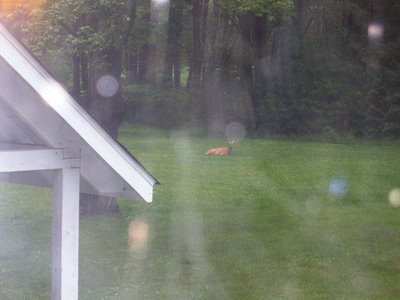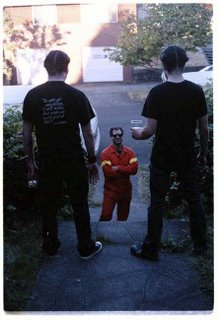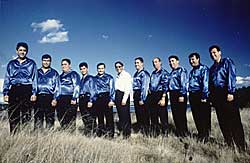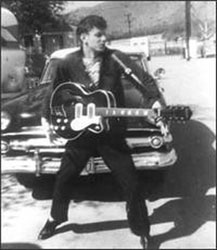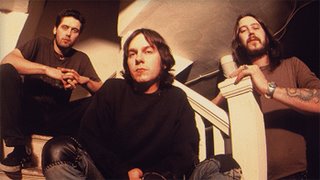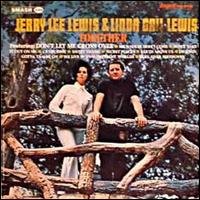
Neil Young is a player who has recently made his impression felt once again, in a familiar though not ineffective manner. “I’m as predictable as a Holiday Inn” was a favorite quote from his 2005
Time interview. In the meantime, I’ve been fleshing out my collection with recordings I had missed for one reason or another. Though
the heated fight to get Reprise Records to release
Time Fades Away as a CD rages on, the 'used bin' at a major online dealer was admittedly a good place to get some of my other cavities filled (several months ago, after a few clicks, I caught up with 6 or 7 awesome N.Y. discs for about $45 all told).
Though I haven’t bothered to track it down, Neil supposedly once appeared on a
National Lampoon list of “Ten People Dolphins are Definitely Smarter Than.” This collegiate jab notwithstanding, (and as milk-and-cookies as it sounds) musically I often feel like the Neil version of a kindergarten platitude: everything I needed to know about music I learned from Neil Young. How to rock, how to love, how one may indeed stretch limited technique to create grand expressions, that country music is cool, that it’s o.k. to change your mind about things, and so much more.
There are a lot of ostensibly independent-minded hippie geeks out there that share my general sentiment for the Old Man, but who have imposed a literal, historical set of expectations on their idol. This divide came to my attention when I caught comments on a popular Neil fan blog to the effect that the album
Prairie Wind was “Neil Young Lite.” Sad for me to think I have anything emotionally-in-common with the Crusties that just want another
Zuma, another
Tonight’s the Night, another
After the Goldrush, basically another bit of the collective wax that has fixed The True Neil into his proper place in the heavens. What would be the point for the living artist or the active listener? Granted, Neil can be counted on to strike the rock’n’roll anvil every 5 years or so—if only because it feels so damn good. But wouldn’t you be similarly compelled if you had a band like Crazy Horse?
When you’re twelve, the morse code rock of “Cowgirl in the Sand” and “Cinnamon Girl” are enough. A true musical archetype is a difficult thing to form, especially in a world cluttered with mere entertainment, and Neil managed to achieve one at a tender age. But my admiration over the long haul of witnessing his meandering and varied career has more to do with Neil’s ability to blindly lunge into new or atypical territory with no intention of answering to an existing body of work (remember this was the guy David Geffen sued for $1M for producing ‘uncharacteristic material’ in the mid-80s).
While many artists struggle with a dichotomy between the “reality” (either really
real or simply subscribed to) of their own sensibilities and the other
possibilities they see and imagine, Neil is able to bring some of these roads-not-taken back to us as listenable artifacts without losing a perceptible artistic self in the process. The contrast between Neil and pal Bob Dylan in this regard is stark, in that the latter has, by his own covert admissions, spent the same 40 years striving to
really become the artistic personage he only imagined or projected during his years of creative adolescence.
Some of the Canadian's 'possibilities' can first come across as mediocre ideas, or even weak performances. But give
Mr. Disappointment (from 2002's
Are You Passionate?) half a dozen listens in different settings or states of mind. The session, for those unfamiliar, teams Neil up with old pals Booker T and Duck Dunn (of MG's fame) to do a fried-out R & B record that works like a plate of Memphis ribs and a couple of beers. This bizarre take on the hallowed subgenre of spoken lyric songs and the overall texture of the mix form a singular musical place that starts out kind of cornball, to say the least. The fumbling guitar lines between verses say all they need to (perhaps: that in life’s travails, some of us are disappointed, some gratified), and there’s something about the voice of Disappointment that reminds me a little of Tricky Dick himself (another legendary Neil Young spiritual nemesis), a resemblance helping to drive home a bittersweet feeling that would be hard to convey on a less intuitive level.
From another place entirely comes
Misfits, a tune which the original Rolling Stone review of 1985’s
Old Ways called “as strange as a meteor falling on the farm.” I guess the Crusties might get away with saying this song is simply another parable ala “After the Goldrush” or “Ride My Llama,” but yes, that’s Waylon Jennings on BVs, and probably the only song on any purportedly ‘country’ album ever recorded that mentions either a space station or Mohammad Ali (word to Mr. Poncho for the boxing riffs, although I'm not sure if there's a genuine sports metaphor here). I keep trying to imagine a song stylist that could make a living delivering tunes of this sort, one after another (I am thinking here of the Johnny Cash interview on NPR’s
Fresh Air in which Cash explained “I’m not a singer, I’m a song stylist”). Roy Orbison may have been the only rocker to have actually given it a fighting chance in his own more elegant style. But "Misfits" is a masterpiece of a genre that doesn’t exist to my knowledge, other than in the minds of the believers. Gotta love the strings. For a moment, the
possible prevails over the known facts—Crosby, Stills and who?
My last example was actually released as a promotional CD single for the 1996 album
Broken Arrow, and definitely falls into the lower-than-porpoise intelligence category. I am trying to imagine the DJ intro: "Neil and those Crazy Horse boys are really setting the airwaves on fire with this one, a hoppin' little number called
This Town!" Ponytailed, paunchy, and strangely preadolescent, the track evokes a sense of place that I feel I can personally can relate to, living in an asphalt-dominated ‘New South’ city, but only paints around the edges of a discernable picture. This could be a garage band’s first recording but, as it happens, comes here from a 30-year veteran and Rock Hall of Famer. A younger man might care to give a few more concrete details . . .
The lesson of Neil Young in these and other instances is that sincerity in the pursuit can take an artist a long way toward realizing possibilities beyond the creative visage set forth in hallmark moments. Whether it is agility of mind, faith in the subconscious, or barrels of homegrown doobage, something is present that allows the seeker to forget himself long enough to make work that reaches toward an as-yet-undefined strain of self.
Meanwhile, the position of many critics and fans takes as given that we all know who The Real Neil is by the moments that forged the legend in the first place. Yet with the pins in different spots, the map could change entirely. In art and life, ‘the real’ is sometimes simply a collection of that series or set of possibilities we repeatedly prefer over others. Our moments of forgetting these preferences may be, for some of us, our few fleeting glimpses of true freedom.
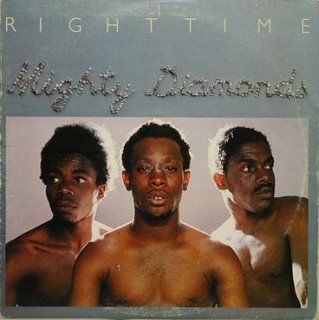
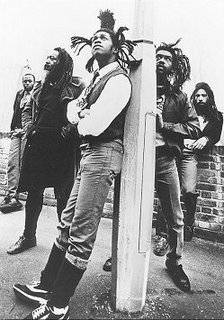 Which reminds me of a little of the outfit worn in this photo. I love the leg warmers! I can never tell if I love Steele Pulse's "Roller Skates" because it's qualitatively good or because I allowed it into my life during an emotionally vulnerable time in high school. The synthesizers must have seemed like a good idea back then, but they weren't. And using one in place of a bass is nearly heretical. That said, the whole storyline of this song is so patently absurd we've already entered a funhouse world in which a rich guy smoking a cigar in a limo decides to pull over and steal a boom box from a Rasta man on roller skates. Even as allegory for oppression, this is just retarded, the kind of crap you'd come up with if you were really, really ... high. But I want to believe the whole is greater than the sum of its parts here. Plus, you can have a lot of fun imagining the early 80s music video for this song as you listen. As you imagineer this thing, I would suggest similar production values to this .38 Special video for "Back Where You Belong."
Which reminds me of a little of the outfit worn in this photo. I love the leg warmers! I can never tell if I love Steele Pulse's "Roller Skates" because it's qualitatively good or because I allowed it into my life during an emotionally vulnerable time in high school. The synthesizers must have seemed like a good idea back then, but they weren't. And using one in place of a bass is nearly heretical. That said, the whole storyline of this song is so patently absurd we've already entered a funhouse world in which a rich guy smoking a cigar in a limo decides to pull over and steal a boom box from a Rasta man on roller skates. Even as allegory for oppression, this is just retarded, the kind of crap you'd come up with if you were really, really ... high. But I want to believe the whole is greater than the sum of its parts here. Plus, you can have a lot of fun imagining the early 80s music video for this song as you listen. As you imagineer this thing, I would suggest similar production values to this .38 Special video for "Back Where You Belong." By the way, let's not forget the hair. Splendid.
By the way, let's not forget the hair. Splendid.
